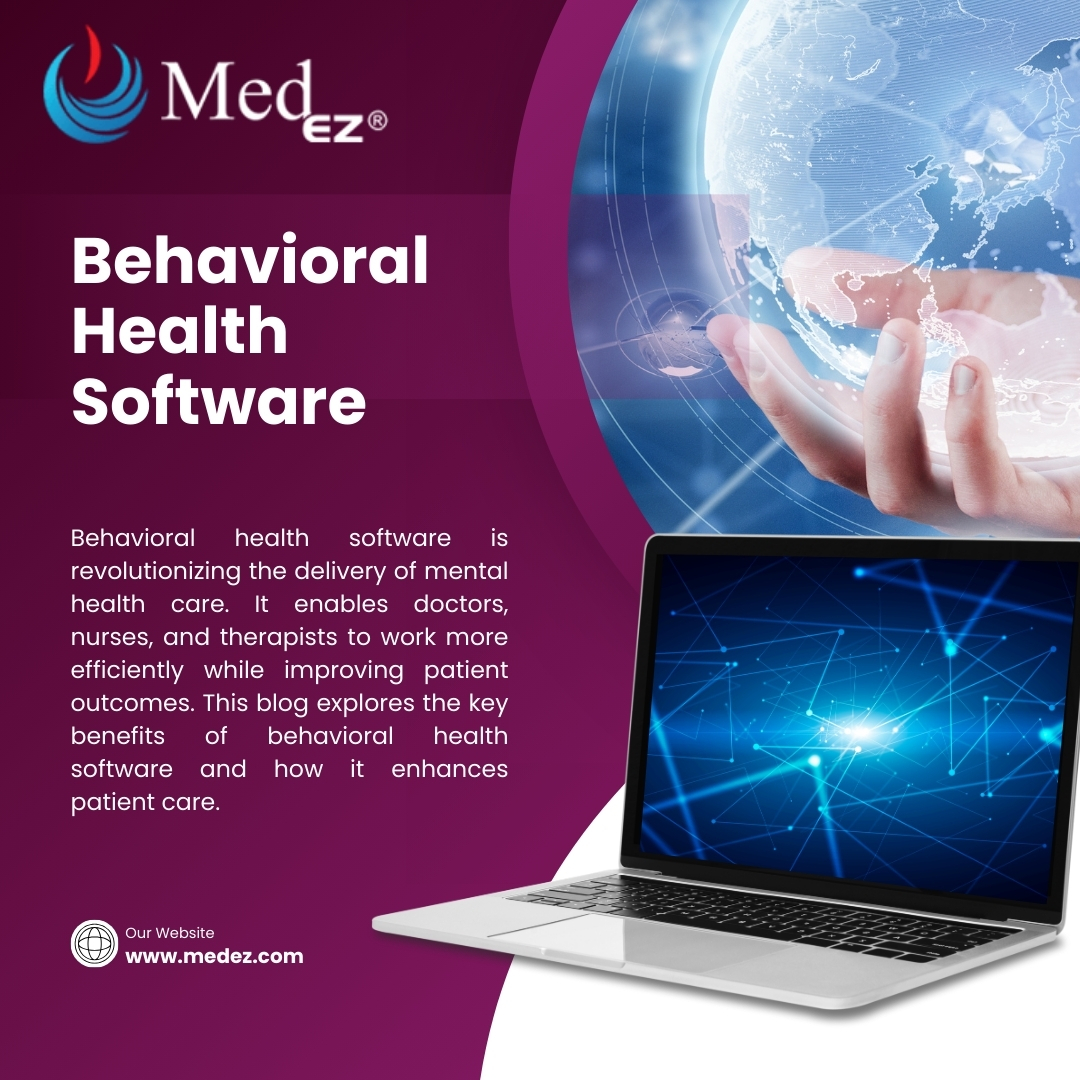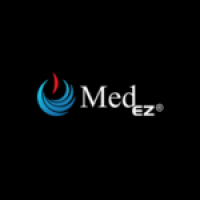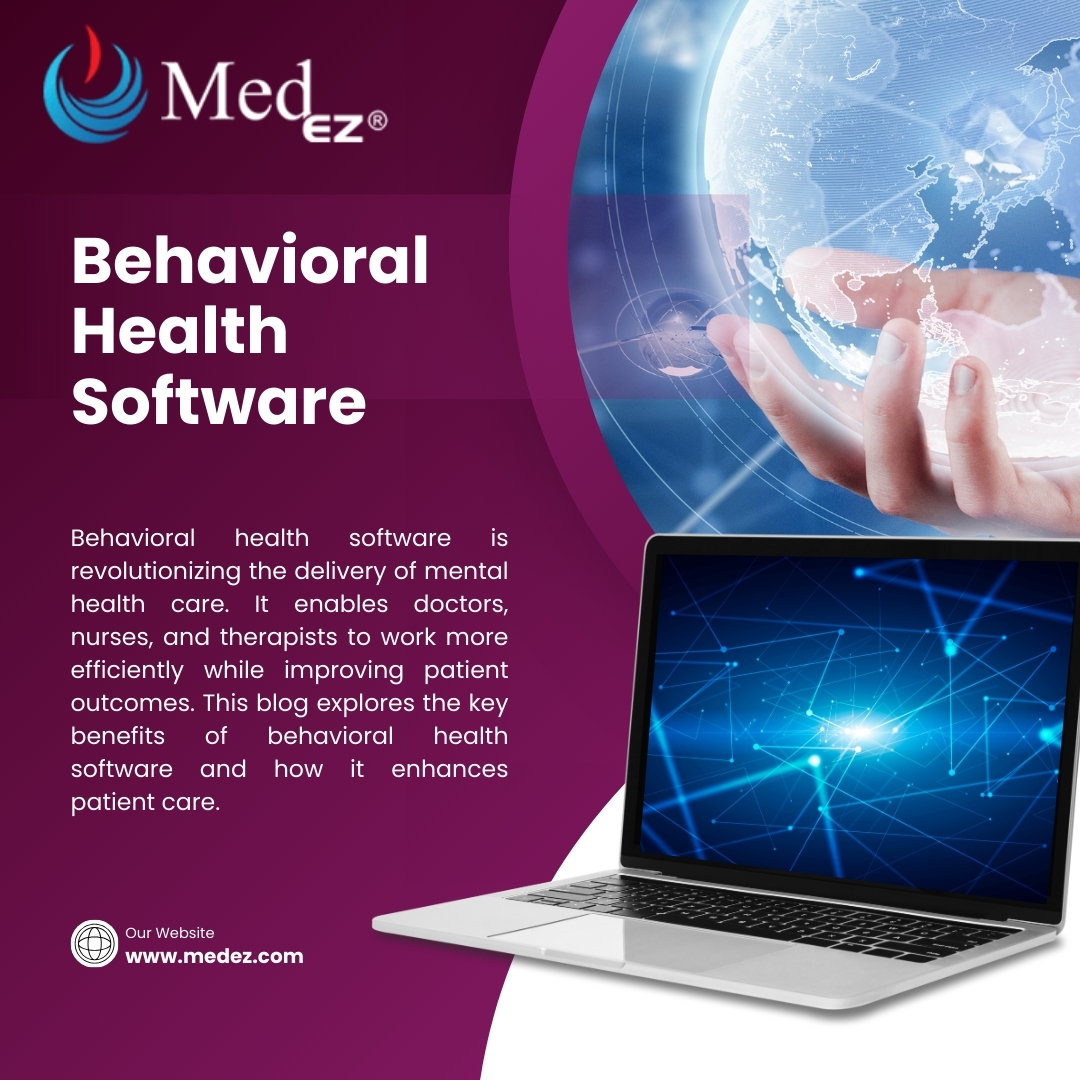How Behavioral Health Software Help Identify Early Signs of Mental Disorders?

Strong 8k brings an ultra-HD IPTV experience to your living room and your pocket.
Mental health problems often go unnoticed until it’s too late, and consequently, some patients never get the right treatment until they’ve already complicated their lives. However, catching a patient’s mental health condition early through intervention can reduce the likelihood of any long-term effects. Also, it improves the outcomes for the patient as well. Behavioral healthcare software plays a vital role in this. With its help, patients can be identified for their mental disorder warning signs much sooner than ever before.
Behavioral healthcare software includes features like digital assessments, mood tracking, and patient history, appointment scheduling, and integrated communication systems. By collecting and analyzing data, this software helps providers get a full picture of a patient's mental health status over time.
1. Spotting Early Red Flags
The initial signs of mental health disorders such as anxiety, depression, or even schizophrenia—can often be very subtle. Changes in sleep, lack of interest in daily functioning, or mood swings can be seen as minor issues. But behavioral health software uses data to show those subtle changes in sleep, functioning, or mood over a series of weeks, or months, which allows the providers to analyze trends and symptoms that may indicate a developing problem.
For example, a patient may show a trend of canceling appointments, not communicating at all with the provider, or regularly responding low on mood. The software can flag these patients to be monitored more closely, while an automated alert system notifies the treatment providers to take intervention steps before it gets worse.
2. Real-Time Monitoring and Reporting
Patients can daily log symptoms with mobile applications connected to the software. On other side, providers can then view all added updates and intervene if necessary. This enhances care and helps the provider to build a robust support system around the patient.
In settings dealing with substance use, substance abuse software adds another layer of protection. It allows providers to track cravings, relapse triggers, and treatment adherence. With added behavioral data, it more accurately captures patient profile and mental health overall, which can lead to quicker and individualized care.
3. AI and Predictive Analytics
Nowadays many healthcare tools include artificial intelligence (AI) to identify early warning signs. AI tools can compare existing patient data compared with past patient records or country-wide data benchmarks or datasets, and determine potential issues. For e.g. a patient has self-reported an increase in stress, has inconsistent sleep patterns, and has withdrawn socially; predictive analytics will create an alert that the patient may be at risk of depression or anxiety.
These features are incredible helpful for healthcare teams, because it does not just allow them to respond to mental health issues, but also proactively work to prevent serious issues.
4. Better Communication and Collaboration
Behavioral health software also allows for greater communication amongst providers - specifically, doctors, therapists, nurses, and case-managers can all work from the same platform to improve clinical team coordination. This way every professional involved knows the early warning signs and can coordinate responses effectively.
Behavioral health clinics rely on integrated systems to manage operations effectively. Automated billing works with other behavioral health software to ensure smooth workflow management. With efficient financial processes, clinicians can focus on providing high-quality care instead of handling billing issues. This holistic approach enhances the overall functionality of the clinic.
7. Boosting Staff Productivity and Job Satisfaction
When repetitive billing tasks are automated, administrative staff can redirect their efforts toward more meaningful work, such as improving patient support and streamlining office operations. This boosts productivity and enhances job satisfaction, leading to a positive work environment and reduced staff burnout.
Conclusion
Automated billing is a game-changer for modern behavioral health clinics. It simplifies financial processes, reduces errors, saves money, and enhances patient satisfaction. As an integral part of behavioral health software, it supports efficient clinic management and allows healthcare providers to focus on what truly matters: delivering exceptional patient care. Clinics that embrace automated billing will operate more efficiently and ensure a better experience for staff and patients.
Conclusion
Mental health treatment is most successful when detected early. Behavioral health and substance abuse software help healthcare professionals and care providers monitor, evaluate and act on the earliest signs of a mental disorder. These solutions elevate outcomes; make mental health care more proactive and data-driven, and accessible.
Note: IndiBlogHub features both user-submitted and editorial content. We do not verify third-party contributions. Read our Disclaimer and Privacy Policyfor details.



